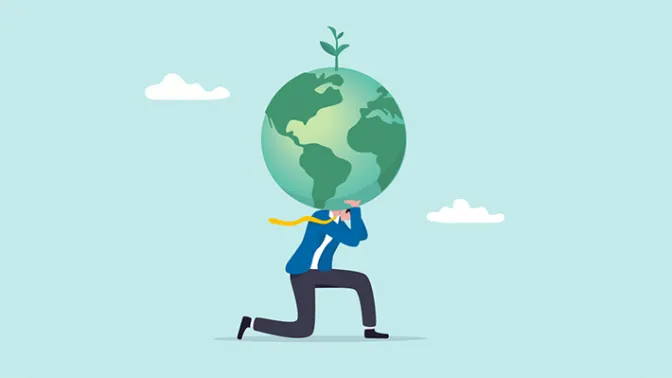Economic sustainability — A Definition Creep
If ever a phrase had definition creep, “Economic Sustainability” has. At one point it had an environmental and philanthropic perspective. Later “energy usage reduction” and “recycling” were added. Today the term includes all of these, plus “supply chain ethics” and “risk mitigation”; “fair labor relations” and “diversity/talent acquisition.”
It all started with the concept of sustainability or “meeting the needs of the present without compromising the ability of the next generation to meet its needs.” Take water from the well today, but not so much that the well runs dry. But how can the world’s scarce resources meet the ever-increasing demands — especially with the unbelievable global growth of the consuming middle class? One obvious answer is focused innovation and targeted R&D investment by companies seeking to increase shareholder value. And the mega-multinationals have been leading the way.
Last month I moderated a panel discussion on economic sustainability. One of my panelists was a multi-billion dollar European based chemical company. The company began to integrate economic sustainability into the entire organization’s strategic thinking twenty years ago. Today, it is their strategy. The company sees sustainability as a global market need. Finding sustainable solutions is a constant source of profitable business opportunities. Whether it is finding ways to use less energy, helping their customers use what were once unwanted byproducts to improve their products, developing new and economical ways to purify water or recycling waste streams into raw materials, the solutions are designed and implemented only if the company’s ROI is achieved. By focusing on the needs of the world and requiring financial discipline in project selection, the company is able to be both a recognized global leader in sustainability and a company focused on shareholder value creation. Capitalism/shareholder value drives their sustainability efforts, resulting in improved environmental and social outcomes.
None of this is particularly new. Companies have always found solutions to pressing global problems. At the beginning of the last century there was great concern that the farmers of the world could not meet the needs of a growing global population. In 1913, the Haber-Bosch process went into production and a new industry — agricultural chemicals — was created. Atmospheric nitrogen was converted to ammonia, using air, heat and pressure — leading to revolutionary fertilizers. Today, the marginal increased food production from that one invention is estimated to feed one-third of the world’s population.
The concept of sustainability has not permeated all levels of business and consumers in the U.S. as it has in much of the rest of the world. Yet, all U.S. companies will eventually be impacted by economic sustainability. The mega-multinationals are driving sustainability throughout their value chains. If you hope to lease a building to them, it better be LEED certified. They are expecting their suppliers to be implementing sustainable practices and providing sustainable solutions and are beginning to monitor them. Given that the mega-multinationals began their journey 20 years ago, it may be time for your company to get started.


